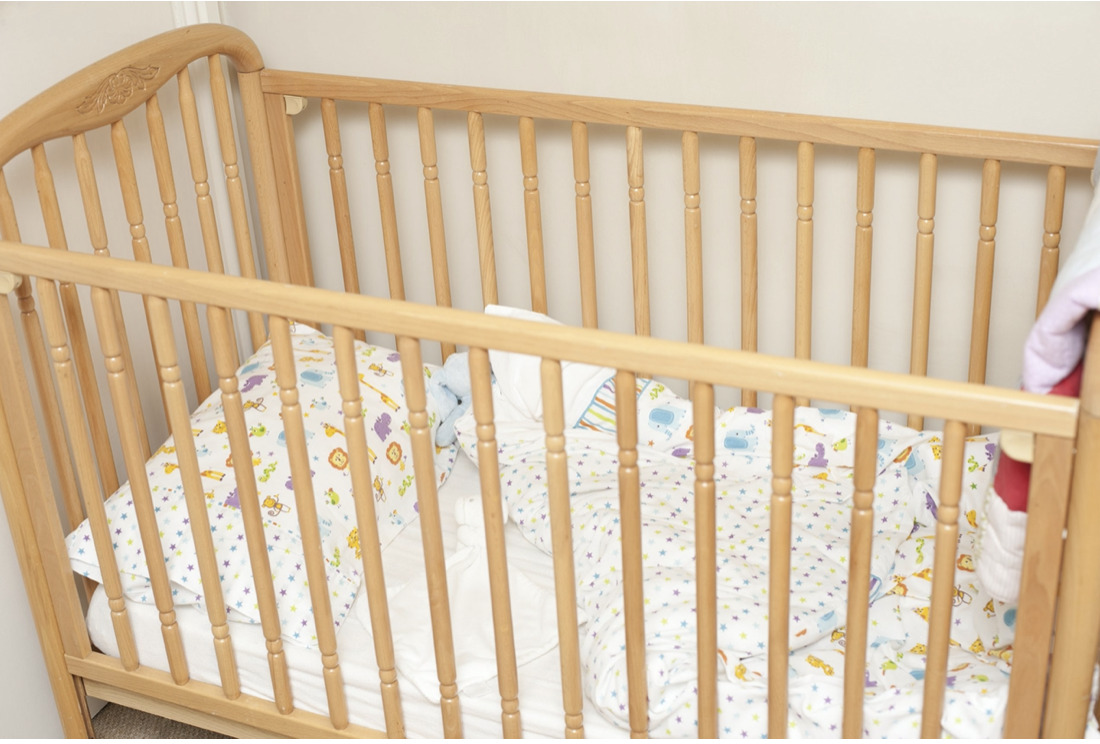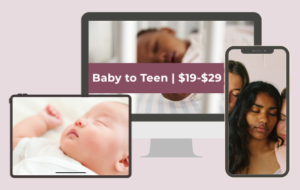The American Academy of Pediatrics released a study in August 2016 involving video of over 160 infants and the environment in which they slept. Through the videos, researchers gained insight into how safe their sleep space was and monitored each baby for one night at the ages of 1, 3, and 6 months.
Surprisingly, despite recommendations from the AAP, health care providers, and safe sleep campaigns, throughout the duration of recordings 10-21% of babies were placed in unsafe sleep environments. Furthermore, 14-33% were not placed on the recommended back to sleep position and 87-93% of babies studied had unsafe products like loose blankets, stuffed animals, pillows, bumper pads, and sleep positioners in their cribs.
Sign Up For Our Newsletter
Sleep-related deaths such as sudden infant death syndrome (SIDS) and accidental suffocation and strangulation in bed are the most common cause of death for babies between the ages of 1 month to 1 year old. These findings are very important and display the urgency for further messaging of infant safe sleep practices.
Parents are tired and I understand that. Often to get those few extra hours of sleep, parents are willing to do whatever it takes to help their baby fall back to sleep. That may mean changing baby’s sleep environment half way through the night, or throwing in a stuffed animal to occupy baby when they wake. What parents have to remember, is that keeping things a simple as possible in regards to their baby’s sleep environment is always best.
- Work with one position only and choose the safest one. Following the recommended AAP safe sleep guidelines baby should only be placed on their backs to sleep.
- Stick to one sleep environment both for naps and night sleep. Often what I see within my practice is what I call reactive co-sleeping. Parents are taking baby to bed with them or to the couch with them half way through the night just to get some extra shuteye. This study showed us that 12-28% of infants were changing sleep locations throughout the night and this is where things can get dangerous. Working on a consistent sleep environment will help baby feel safe and secure throughout the night. In turn, this will encourage longer stretches of sleep for everyone, and more importantly keep baby safe while sleeping.
- Clear the crib entirely. All you need is a certified safe mattress and fitted crib sheet and that is it. Remove all blankets and pillows. If you are concerned about your baby being cold, layer them accordingly with clothing and a sleep sack. A pillow should not be introduced into your child’s sleep environment until they are 18 months of age. Stuffed animals and lovey’s can pose as a suffocation hazard so it’s best to remove them from your baby’s crib until 1 year of age. Lastly, padded bumpers and sleep positioners are not necessary. Your baby will not be injured by a slight bump on the side of the crib and it’s best not to prevent them from learning to move and roll over naturally with positioners. These items can also become a suffocation and strangulation hazard that can easily be avoided.
Remember that keeping sleep as simple as possible for your baby and avoiding unsafe sleep environments is always the safest route to take. Introducing better sleep habits once your baby is old enough will also help parents keep safe sleep practices consistent as baby starts sleeping better.
This post was previously published on YummyMummyClub.ca
 Alanna McGinn is a Certified Sleep Consultant and Founder of Good Night Sleep Site – a Global Pediatric and Family Sleep Team. She provides free child and family sleep support through Facebook, Twitter, and Instagram. She invites you to join her sleep community as she works towards Good Night Sleep Site’s mission of a healthier rested family unit. For more sleep tips, subscribe to our newsletter and visit Good Night Sleep Site.
Alanna McGinn is a Certified Sleep Consultant and Founder of Good Night Sleep Site – a Global Pediatric and Family Sleep Team. She provides free child and family sleep support through Facebook, Twitter, and Instagram. She invites you to join her sleep community as she works towards Good Night Sleep Site’s mission of a healthier rested family unit. For more sleep tips, subscribe to our newsletter and visit Good Night Sleep Site.











